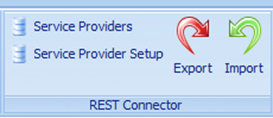Integration is a key topic for our partners and customers. Everyone wants their systems to ‘talk’ to each other, yet we hear about businesses who struggle to prioritize the integration process.
With that in mind, here are 4 signs your business is ready to embrace true integration:
- Inefficient Day-to-Day Administration
How many systems are your employees jumping between to do their jobs? How much time is spent manually updating/entering data? Look for duplicate data entry across systems. Watch for employees keying data off spreadsheets, gathering data from print outs, or storing mission-critical information on their local machine. These are just a few signs that day-to-day processes are inefficient.
One of the biggest benefits of a true integration solution is not simply transferring data from one system to another, but transforming data to deliver a business process and eliminate manual processes. Imagine a non-profit receiving contact information for hundreds of potential donors after a gala event. We’ve seen real organizations have this exact scenario, and their first approach is to hand-key the contact data into CRM and then attempt the native Microsoft Dynamics CRM import one entity at a time. Certainly, integration would help in a few ways with this– being able to import to multiple entities while setting the right relationships along the way. However, rather than simply importing those into a CRM system, true data transformation can create opportunities, add them to a marketing campaign or trigger invoices in an ERP – in addition to account and contact creation within CRM. With their systems integrated, the organization spends less on inefficient administration and can spend more time and resources on their cause.
- You Want Your Business to Grow
The old saying goes “You’re either growing or you’re dying.” Since we’re all committed to growing our businesses, we need to anticipate future business process changes in order to scale and ensure any investment in software is worthwhile.
Integration is more important than ever for companies that plan to grow. At eOne, we sell through multiple channels. In 2015, when one of our selling agreements changed, we needed to start handling the billing and renewals for 15,000 customers directly. We were able to move quickly using SmartConnect, eOne’s integration tool, to automate in as many areas as possible. Without integration, we would have needed to add at least 10 more people to our accounting team. Integration is what allows our team to scale and provide great experiences for our partners and customers.
As new apps are added for things like timesheets, expense reports, project management, etc., integrations can ensure that the critical information stored in the apps – makes it to your ERP or CRM system where you need it (and then it can be used to automate transactions from there).
And don’t forget – when evaluating integration solutions, ensure the tool is the right fit now and five years from now. Things will change, so make sure your integration strategy can handle that.
- Your Team is Missing Information
We live in an information age – there’s more data stored than ever before. With all the data you collect – is it driving your team’s daily decisions? Does it make them more productive? When your sales team is out visiting a client, do they know all orders are up to date in the system so they can tailor their conversations with that client? Or do they have to guess?
Let’s turn this around. When you call into an airline or a health care provider and you speak to multiple people, how fun is it to repeat the same story and information to multiple people? While some information is required to repeat for security reasons, it really feels like a lot of wasted time – not a good impression to leave with someone you’re doing business with.
Integrations can ensure the team has the data they need to provide better service, recognize potential business opportunities, and it can also help drive their daily activities. Think of birthdays triggering an activity in CRM for your sales person to make a call or paid purchase orders prompting direct follow ups. The possibilities are endless.
- Your Business is Not Basic. It’s Complex.
To be honest, this applies to every business we’ve worked with. Even the most “simple” businesses quickly learn that their processes are unique, sometimes even complex. Perhaps you have multiple companies or business units – integration is key to help you move data efficiently and to handle logic for where that data needs to go. Maybe you’ve experienced a recent merger or acquisition – how are you moving all your mission critical data out of your legacy system? You need an integration solution to help you in the process.
I hope this help get the wheels turning on better ways to maximize current integrations or understand the true benefit to be gained when incorporating powerful tools into your business practices.
If you have questions on my recommended integration solution, let me know. Email me at luke.steckler@eonesolutions.com.
